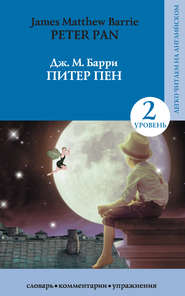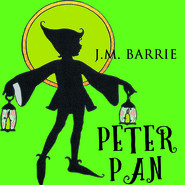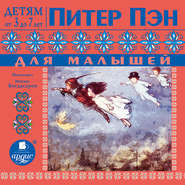По всем вопросам обращайтесь на: info@litportal.ru
(©) 2003-2024.
✖
A Widow's Tale, and Other Stories
Настройки чтения
Размер шрифта
Высота строк
Поля
"I cannot understand," he said, almost severely, "what you can mean."
"Well, perhaps it is a little difficult; but still such things do happen. You must not jump at the conclusion that it is all my fault."
Horace came up to her with his serious face, and put his arm round her, turning her towards him. "I was not thinking of any fault, mother; but surely I may know more than this? You and he don't quarrel for nothing, and I am not a child. You must tell me. Mother, what is the matter?" he said, with great alarm. For she was overdone in every way, worn out both body and mind, and when she felt her son's arm round her nature gave way. She leant her head upon his young shoulder, and fell into that convulsive sobbing which it is so alarming to bear. It was some time before she could command herself enough to reply —
"Oh, that is true – that is true! not for nothing. But, dear Horry, you can't be the judge, can you, between your father and mother? Oh no! Leave it a little; only leave it. It will perhaps come right of itself."
"Mother, of course I can't be the judge; but still, I'm not a child. May I go, then, and see papa?"
"Oh no," she cried, involuntarily clasping his arm tight – "oh no! not for the world."
The youth grew very grave: he withdrew his arm from her almost unconsciously, and said, "Either it is a great deal more serious than you say, or else – "
"It is very serious, Horace. I don't deceive you," she said. "It may come to that– that we shall never – be together any more. But still I implore you, don't go to your father – oh! not now, my dear. He would not wish it. You must give me your word not to go."
She could not bear the scrutiny of his eyes. She turned and went away from him, putting off her light cloak, pulling open drawers as if in a search for something; but he stood where she had left him, full of perplexity and trouble. A quarrel between his parents was incredible to Horace; and the idea of a rupture, a public scandal, a thing that could be talked about! He stood still, overwhelmed by sudden trouble and distress, though without the slightest guess of the real tragedy. "I can't think what you could quarrel about," he said. "It seems a mere impossibility. Whatever it is, you must make it up, mother, for our sakes."
"My dear, anything that can be done, you may be sure will be done, for your sakes."
"But it is impossible, you know. A quarrel! between you and papa! It is out of the question. Nobody would believe it. I think you must be joking all the time," he said, with an abrupt laugh. But his laugh seemed so strange, even to himself, that he became silent suddenly with a look of confusion and irritation. Never in his life had he met with anything so extraordinary before.
"I am not joking," she said; "but, perhaps, after a while – Come and have your luncheon, Horace. I know you want it. And perhaps after a time – "
"You are worn out too, mother; that is what it is. One feels irritable when one is tired. After you have eaten something and rested yourself, let me go to papa. And we'll have a jolly dinner together and make it all up."
And she had the heroism to say no more, but went down with him, and pretended to eat, and saw him make a hearty meal. While she sat thus smiling at her boy, she could not but wonder to herself what he was doing. Was he smiling too, keeping up a cheerful face for the sake of the unfortunate girl not much older than Horace? God help her whom he had destroyed! She kept imagining that other scene while she enacted her own. Afterwards she persuaded Horace with some difficulty to let everything stand over till next day, telling him that she had great need of rest (which was true enough) and would lie down; and that next evening would be time enough for any further steps. She insisted so upon her need of rest, that he remembered that Dick Fareham had asked him to dine with him at his club, and go to the theatre if he had nothing better to do – a plan which she caught at eagerly.
"But how can I go and leave you alone in a hotel?" he said.
"My dear, I am going to bed," she replied, which was unanswerable. And after many attempts to know more, and many requests to be allowed to go to his father, Horace at last yielded, dressed, and went off to the early dinner which precedes a play. He had brought his dress clothes with him, though there had been so little time for feasting, confident that even a few days in London must bring pleasure of some kind. And already the utterly absurd suggestion that his father and mother could have had a deadly quarrel began to lose its power in his mind. It was impossible. His mother was worn out, and had been irritable; and his father, especially when he had a touch of gout, was, as Horace well knew, irritable also. To-morrow all that would have blown away, and they would both be ashamed of themselves. Thus he consoled himself as he went out; and as the youth never had known what family strife or misfortune meant, and in his heart felt anything of the kind to be impossible, it did not take much to drive that incomprehensible spectre away.
Mrs Lycett-Landon was at length left alone to deal with it by herself. What was she to do? She had a fire lighted in the blank room, though it was the height of summer, for agitation and misery had made her cold, and sat over it trembling, and trying to collect her thoughts. Oh, if it could be but possible to do nothing, to say no word to any one, to forget the episode of this morning altogether! "If I had not known," she said to herself, "it would have done me no harm." This modern Eleanor, who had fallen so innocently into Rosamond's bower, had no thought of vengeance in her heart. She had no wish to kill or injure the unhappy girl who had come between her and her husband. What good would that do? Were Rosamond made an end of in a moment, how would it change the fact? What could ever alter that? The ancients did not take this view of the subject. They took it for granted that when the intruder was removed life went on again in the same lines, and that nothing was irremediable. But to Mrs Lycett-Landon life could never go on again. It had all come to a humiliating close; confusion had taken the place of order, and all that had been, as well as all that was to be, had grown suddenly impossible. Had she not stopped herself with an effort, her troubled mind would have begun again that painful refrain which had filled her mind in the morning, which was perhaps better than the chaos which now reigned there. So far as he was concerned she could still wonder and question, but for herself everything was shattered. She could neither identify what was past nor face what was to come. Everything surged wildly about her, and she found no footing. What was to be done? These words intensify all the miseries of life – they make death more terrible, since it so often means the destruction of all settled life for the living, as well as the end of mortal troubles for the dead – they have to be asked at moments when the answer is impossible. This woman could find no reply as she sat miserable over her fire. She was not suffering the tortures of jealousy, nor driven frantic with the thought that all the tenderness which ever was hers was transferred to another. Perhaps her sober age delivered her from such reflections; they found no place at all in the tumult of her thoughts; the questions involved to her were wholly different: what she was to do; how she was to satisfy her children without shaming their youth and her own mature purity of matronhood which had protected them from any suggestion of such evil? How they were ever to be silenced and contented without overthrowing for ever in their minds their father and the respect they owed him? This was the treble problem which was before her – by degrees the all-absorbing one which banished every other from her thoughts. What could she say to Horace and Milly? How were they to be kept from this shame? Had they been both boys or both girls, it seemed to their mother that the question would have been less terrible; but boy and girl, young man and young woman, how were they ever to be told? How were they to be deceived and not told? Their mother's powers gave way and all her strength in face of this question. How was she to do it? How was she to refrain from doing it? That pretext of a quarrel, how was it to be kept up? and in what other way – in what other way, oh heaven! was she to explain to them that their father and she could meet under the same roof no more? She covered her face with her hands, and wept in the anguish of helplessness and incapacity; then dried her eyes, and tried again to plan what she could do. Oh that she had the wings of a dove, that she might flee away and be at rest! – but whither could she flee? She thought of pretending some sudden loss of money, some failure of fortune, and rushing away with the children to America, to Australia, to the end of the world; but if she did so, what then? Would it become less necessary, more easy to explain? Alas! no; nothing could change that horrible necessity. The best thing of all, she said to herself, if she were equal to it, would be to return home, to live there as long as it was possible, with her heart shut up, holding her peace, saying nothing – as long as it was possible! – until circumstances should force upon her the explanation which would have to be made. Let it be put off for weeks, for months, even for years, it would have to be made at last.
Thus she sat pondering, turning over everything, considering and rejecting a thousand plans; and then, after all, acted upon a sudden impulse, a sudden rising in her of intolerable loneliness and insufficiency. She felt as if her brain were giving way, her mind becoming blank, before this terrible emergency, which must be decided upon at once. Horace was safe for a few hours, separated from all danger, but how to meet his anxious face in the light of another day his mother did not know. She sprang up from her seat, and reached towards the table, on which there were pens and ink, and wrote a telegram quickly, eagerly, without pausing to think. The young ones were in the habit of laughing at old Fareham. She herself had joined in the laugh before now, and allowed that he was methodical and tedious and tiresome. He was all these, and yet he was an old friend, the oldest friend she had, one who had known her father, who had seen her married, who had guided her husband's first steps in the way of business. He was the only person to whom she could say anything. And he was a merciful old man: when troubles arose – when clerks went wrong or debtors failed – Mr Fareham's opinion was always on the side of mercy. This was one of the reasons why they called him an old fogey in the office; always – always he had been merciful. And it was this now which came into her mind. She wrote her telegram hastily, and sent it off at once, lest she should repent, directing it not to the office, where it might be opened by some other hand than his, but to his house. "Come to me directly if you can. I have great need of your advice and help. Tell no one," was what she said. She liked, like all women, to get the full good of the permitted space.
CHAPTER VIII.
EXPEDIENTS
His mother was in bed and asleep when Horace returned from his play – or at least so he thought. He opened her door and found the room dark, and said, "Are you asleep, mamma?" and got no answer, which he thought rather strange, as she was such a light sleeper. But, to be sure, last night had been so disturbed, she had not slept at all, and the day had been fatiguing and exciting. No doubt she was very tired. He retired on tiptoe, making, as was natural, far more noise than when he had come in without any precaution at all. But she made no sign; he did not wake her, where she lay, very still, with her eyes closed in the dark, holding her very breath that he might not suspect. Horace had enjoyed his evening. The play had been amusing, the dinner good. Dick Fareham, indeed, had asked a few questions.
"I suppose you found the governor all right?" he said.
"I didn't," said Horace; "the mother did."
"And he's all right, I hope?"
"I can't tell you," said Horace, shortly; "I said I hadn't seen him."
The conversation had ended thus for the moment, but young Fareham was too curious to leave it so. He asked Horace when he was coming to the London office. "I know I'm only a warming-pan," he said, "keeping the place warm for you. I suppose that will be settled while you are here."
"I don't know anything about it," said Horace. "We heard you were all at sixes and sevens in the office."
"I at sixes and sevens!"
"Oh, I don't mean to be disagreeable. We heard so," said Horace, "and that the governor had his hands full."
"I'd like to know who told you that," said the young man. "I'd like to punch his head, whoever said it. In the first place, it is not true, and your father is not the man to put such a story about."
Now Horace had not been told this as the reason of his father's absence, but had found it out, as members of a family find out what has been talked of in the house, the persons in the secret falling off their guard as time goes on. He was angry at the resentment with which he was met, but a little at a loss for a reply.
"Perhaps you think I have put it about?" he said, indignant. "It has not been put about at all, but we heard it somehow. That was why my father – "
"I think I can see how it was – I think I can understand," said young Fareham. "That was what called your father up to London. By Jove!"
And after that he was not so pleasant a companion for the rest of the evening. But the play was amusing, and Horace partially forgot this contretemps. When he found his mother's room shut up and quiet, he went to his own without any burden on his mind. He was not so anxious about "the governor" as perhaps Milly in his place might have been. It was highly unpleasant that the mother and he should have quarrelled, and quite incomprehensible. But Horace went to bed philosophically, and the trouble in his mind was not enough to keep him from sleep.
Young Fareham, on his side, wrote an indignant letter to his uncle, demanding to know if his mind too had been poisoned by false reports. The young man was very angry. He was being made the scapegoat; he was the excuse for old Landon's absence, who had not been near the office for months, and he called upon his own particular patron to vindicate him. Had his private morals been attacked he might have borne it; but to talk of the office as at sixes and sevens! this was more than he could bear.
Next morning, before anybody else was awake, an early housemaid stole into Mrs Lycett-Landon's room, and told her that a gentleman had arrived who wanted to see her. The poor lady had slept a little towards the morning, and was waked by this message. She thought it must be her husband, and after a moment of dolorous hesitation got up hastily and dressed herself, and went to the sitting-room, which was still in the disorder of last night, and looking, if that were possible, still more wretched, raw, and unhomelike than in its usual trim. She found, with a great shock and sense of discouragement, old Mr Fareham, pale after his night's journey, with all the wrinkles about his eyes more pronounced, and the slight tremor in his head more visible than ever. He came forward to meet her, holding out both his hands.
"What can I do for you?" he said. "What has happened? I came off, you see, by the first train."
"Oh, Mr Fareham, I never expected this! You must have thought me mad. I think, indeed, I must have been off my head a little last night. I telegraphed, did I? – I scarcely knew what I was doing – "
"You have not found him, then?"
She covered her face with her hands. To meet the old man's eyes in the light of day and tell her story was impossible. Why had not she gone away, buried herself somewhere, and never said a word?
"I have seen Mr Landon, Mr Fareham; he is not – ill: but Horace knows nothing," she said, hastily.
"My dear lady, if I am to do anything for you I must know."
"I don't think there is anything to be done. We have had a – serious disagreement; but Horace knows nothing," she repeated again. He looked at her, and she could not bear his eyes. "I am very sorry to have given you so much trouble – "
"The trouble is nothing," he said. "I have known you almost all your life. It would be strange if I could not take a little trouble. I think I know what you mean. You were distracted last night, and sent for me. But now in the calm of the morning things do not look so bad, and you think you have been too hasty. I can understand that, if that is what you mean."
She could not bear his eye. She sank down in the chair where she had sat last night and talked to Horace. In the calm of the morning! It was only now, when she felt that she had begun to live again, that all her problems came back to her, full awake, and fell upon her like harpies. Things do not look so bad! There passed through her mind a despairing question, whether she had strength to persuade him that this was so, and that there really was nothing to appeal to him about.

















